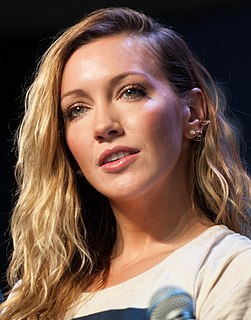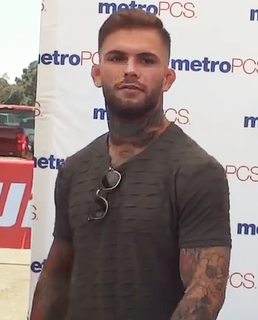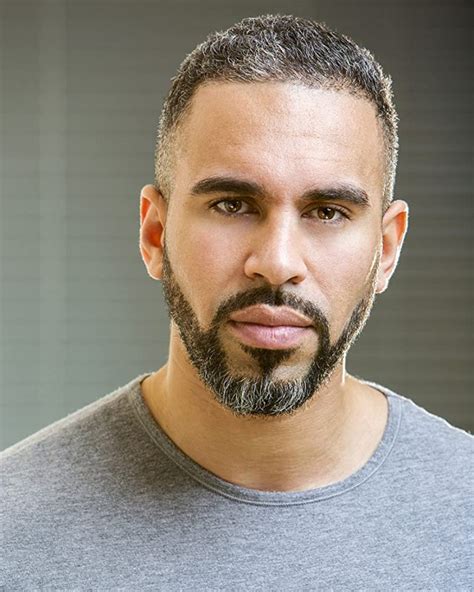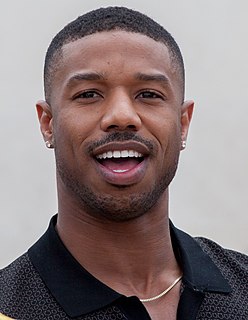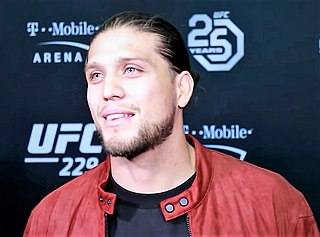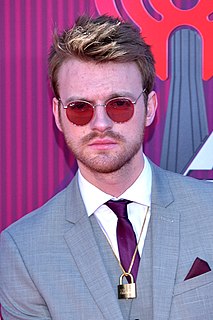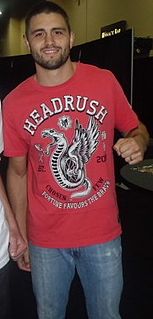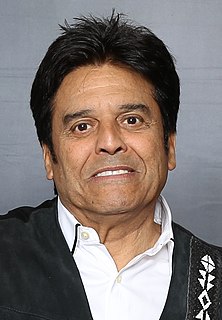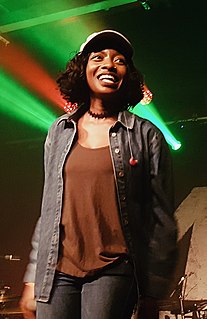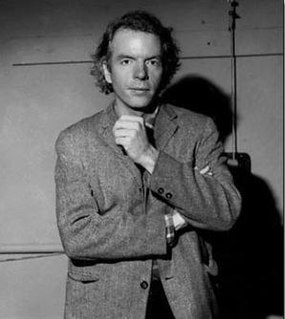A Quote by Katie Cassidy
The cool thing for me, as an actor, I like to be as true and honest as possible, and I'm into real fight training.
Related Quotes
When an acting teacher tells a student 'that wasn't honest work' or 'that didn't seem real,' what does this mean? In life, we are rarely 'truthful' or 'honest' or 'real'. And characters in plays are almost never 'truthful' or 'honest' or 'real'. What exactly do teachers even mean by these words? A more useful question is: What is the story the actor was telling in their work? An actor is always telling a story. We all are telling stories, all the time. Story: that is what it is all about.
Even when you spar for real and fight with full contact in training, you get hurt or you hurt someone and you see them trying to fight back. I want to inject as much reality as possible into fight scenes, even if some of the moves are slightly larger than life, if the emotion is there you'll then still be able to buy it. I recall seeing some films where people perform an acrobatic flip mid-fight and land with graceful precision and it's almost like watching Zorro... it's almost whimsical but you're no longer engaged.
I'm the type of actor that believes the director has to be in charge. I've been on sets where the actor's ego was the most important thing, and with a director that messes it up. But I don't like a dictator, I want it to be collaborative - the best idea wins. If I feel respected, and I'm going to give that back. If a director wants to try something, cool, I'll give it back. I also feel like they cast me for a reason, so I'm going to make my mark on it... let me do my thing.
Fourteen weeks before the Mendes fight I tore 80 per cent of my ACL [anterior cruciate ligament]. That is the main ligament for stability. Every day in that training camp when I was working my way back, I was saying "real champions fight through any adversity". That is why I am a real champion and he is not. Look at my eye [he had seven stitches put in an old wound after an injury in training the night before we met]. Fighters fight on. Aldo got scared, he went running and I worry he will run again.
I keep training hard, keep working out, keep looking at my fights, and I wonder, 'If I was to fight me, how would I beat me?' It's like having a boat with a bunch of holes. I'm trying to patch up all the holes. If I was to fight myself, I'd take advantage of certain things. I've got to know my opponent is thinking the same thing.
The difference is that the money I make from Reebok is per fight, meaning I have to fight to get that money. If I don't fight, there is no money. It's not based on me being a good spokesman or one of the faces of their company. It's a per fight thing. It's a very different thing. It's more like a fight bonus than a sponsorship.
The biggest thing about me, as an actor, is I'm never a finished product, you know? I always want to try something or be in a new genre because, one, it's much more fun to do that because you're not doing the same thing over and over. One of the greatest reasons is that it keeps stretching you as an actor. So, hopefully, my method is that it makes me a better actor, and a more believable actor, so then, the more experience I have in any way possible, in a drama or a musical genre, different formats of working, the better I can be on all different platforms.
